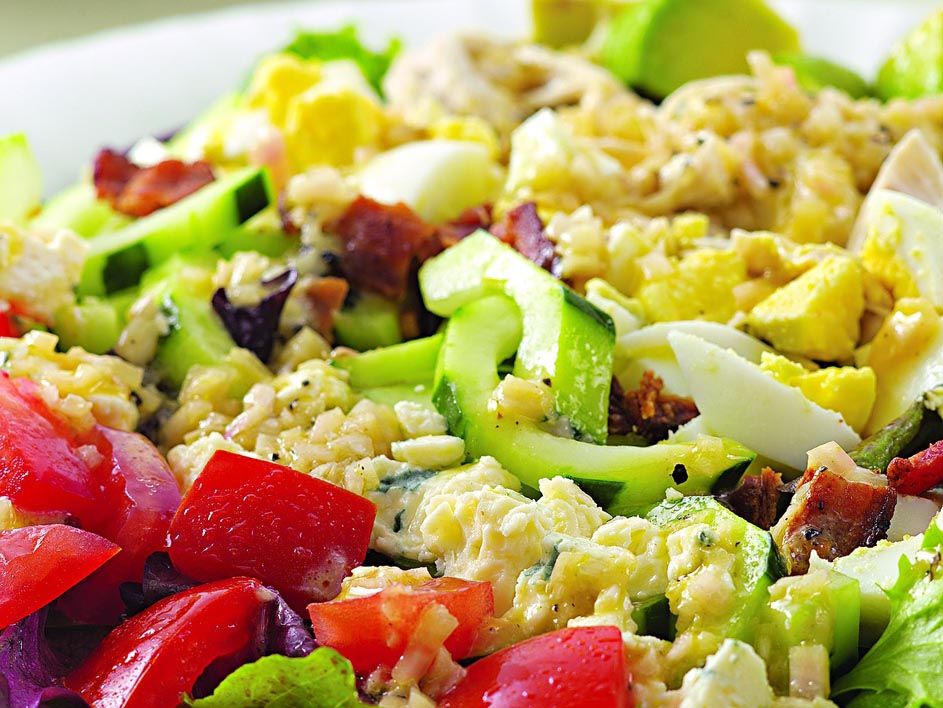Tips for Following a Kidney Disease and Diabetes Diet
How Are Diabetes and Kidney Disease Related?
Eating well can help you manage both conditions.2,3 Always talk to your doctor or dietitian before making any major changes to your diet.
5 Tips for Making a Diabetic Kidney Disease Diet Work for You
1. Start with the right foods.
Choose nutritious foods that are good for both diabetes and kidney disease:
- Vegetables. Eating plenty of fresh produce helps slow the progression of kidney disease.4,5 Enjoy diabetes-friendly veggie favorites like peppers, broccoli, green leafy vegetables, mushrooms, carrots, and lots more.
Recipe idea:
Cobb Salad with Dijon Dressing
- Fruits.
Kidney-friendly fruits like apples, grapes, peaches, and watermelon make a great snack anytime. Berries are especially beneficial for keeping diabetes in check because they are lower in sugar. Choose whole fruits to get the benefits of fiber and limit fruit juice to minimize sugar and potassium. Avoid starfruit if you are on dialysis because it can cause neurotoxicity.
Recipe idea:
Strawberry Fruit Salad
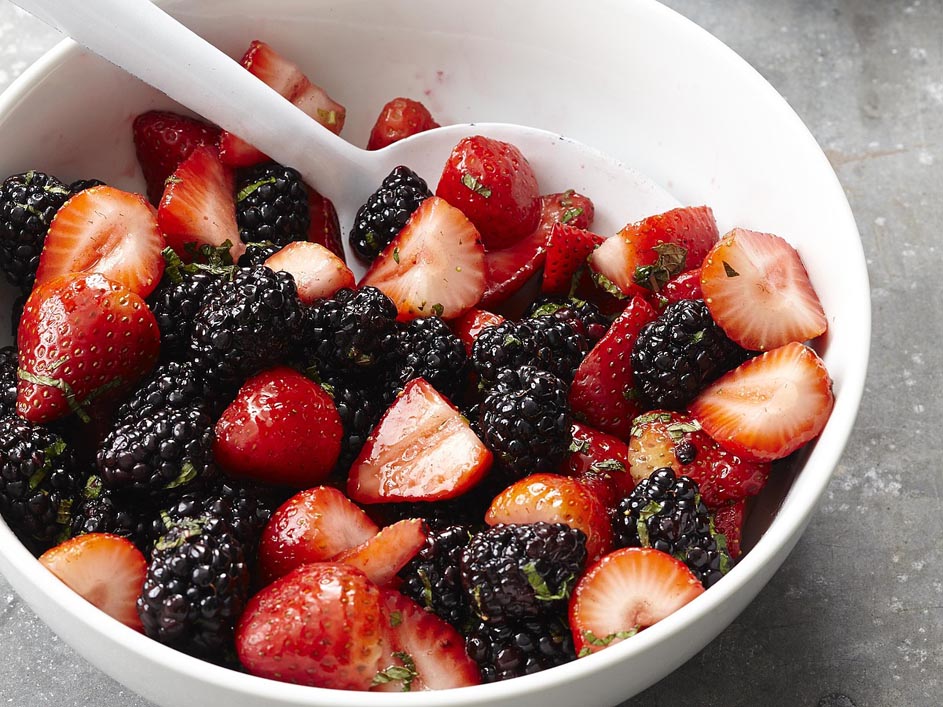
- Whole grains. High-fiber carbs like whole grain bread, whole grain pasta, brown rice, and even unsalted popcorn can be smart choices in moderation. Eating high-fiber foods helps keep your blood sugar within a normal range and prevents spiking. Remember, with diabetes, it’s important to count your carbs and keep an eye on portion sizes.
Recipe idea:
Easy Fried Rice
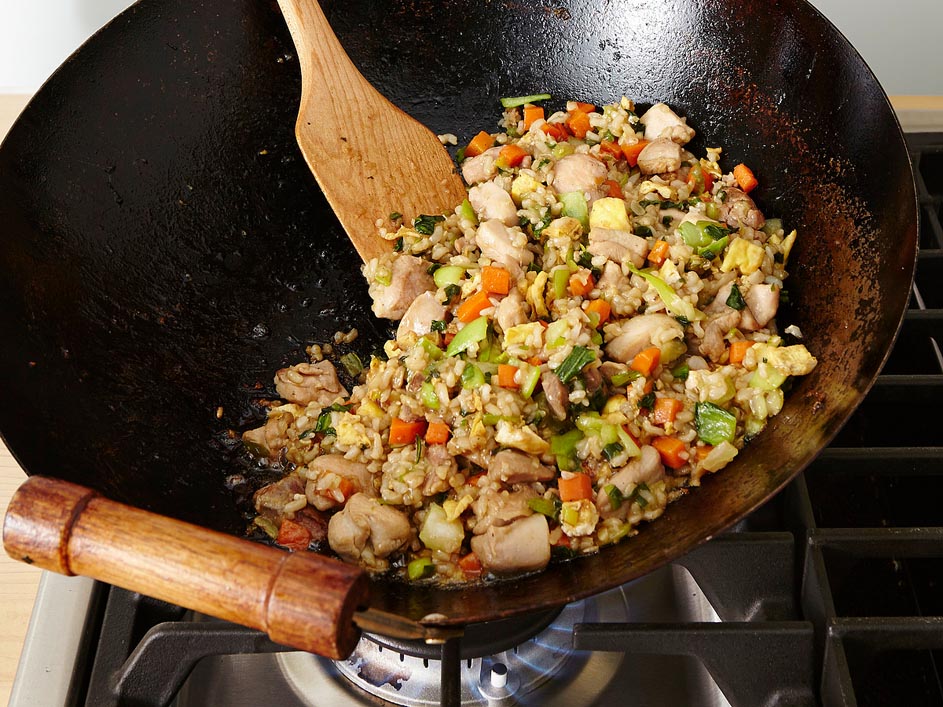
- Proteins. Balance your meals with fresh protein choices such as chicken, fish, and eggs. Limit processed foods like deli meats or sausages because they are usually high in sodium and phosphorus. Try plant-based proteins like unsalted nuts, beans, and tofu for an extra health boost—they’re easier on your kidneys and great for controlling blood sugar.4,5
Recipe idea:
Spicy Tofu Scrambler
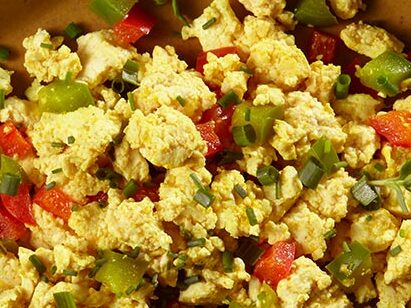
- Unsaturated fats. Healthy fats like unsaturated fats can be good for you. Unsaturated fats typically come from plants and are found in vegetable oils, nuts, and peanut butter. You can also find them in fish that are high in omega-3 fatty acids.
Recipe idea:
Seared Salmon with Braised Broccoli
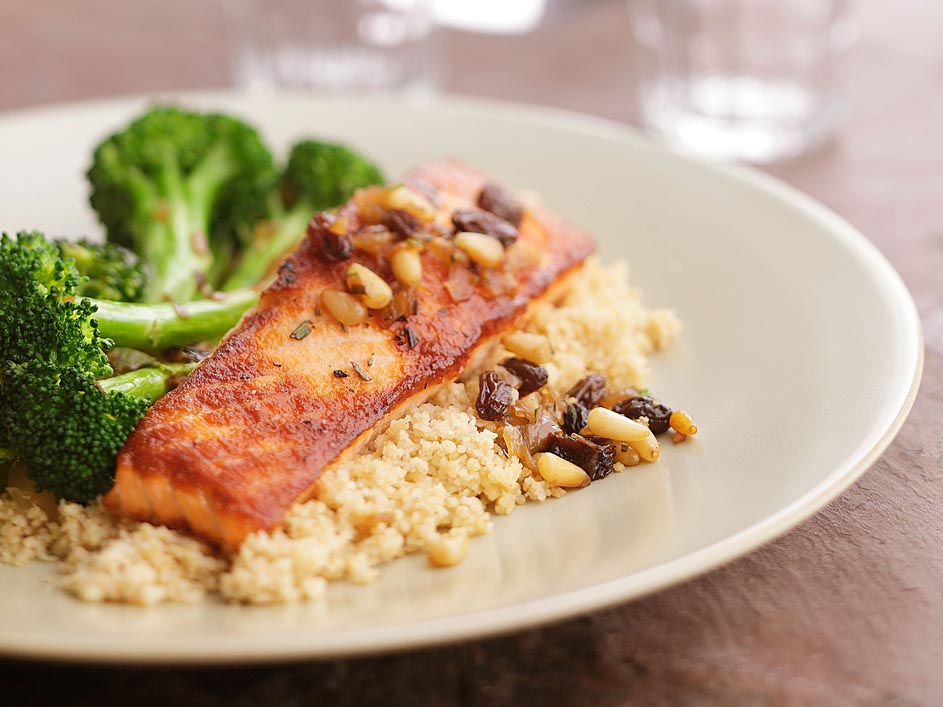
2. Avoid nutritional setbacks
It’s important to eat plenty of healthy nutrients, but it’s just as important to avoid the ones that will set you back. People with CKD and diabetes should minimize:
- Sodium. Too much salt or sodium can raise your blood pressure, throw off your fluid balance, and put added stress on your kidneys.2
- Potassium and phosphorus. If you’re living with CKD, these nutrients are hard for your body to keep balanced. Read nutrition labels and look out for foods that are high in added potassium and phosphorus.
- Added sugars. People with diabetes need to monitor their blood sugar (glucose levels) and should avoid eating too many sweets as part of their daily diet. High blood sugar can worsen diabetes and kidney disease.
Be aware that some foods are good for people with one condition, but not the other. For example, high-potassium foods like avocados or apricots can fit into a diabetic diet, but aren’t always good for people with CKD. Your carb and protein needs can also change depending on your health.6 When in doubt, ask your doctor or dietitian for advice.
3. Eat every meal every day
4. Spice things up
5. Plan for deliciousness
Make Your Kidney Disease and Diabetes Diet Work for You
References
1“Kidney International Supplement to KDIGO 2020 Clinical Practice Guideline for Diabetes Management in Chronic Kidney Disease.” 2020. https://kdigo.org/wp-content/uploads/2020/10/KDIGO-2020-Diabetes-in-CKD-GL.pdf.
2 National Institute of Diabetes and Digestive and Kidney Diseases. 2019. “Diabetes in America, 3rd Edition | NIDDK.” National Institute of Diabetes and Digestive and Kidney Diseases. September 18, 2019. https://www.niddk.nih.gov/about-niddk/strategic-plans-reports/diabetes-in-america-3rd-edition.
3Ko GJ, Kalantar-Zadeh K, Goldstein-Fuchs J, Rhee C. Dietary Approaches in the Management of Diabetic Patients with Kidney Disease. Nutrients 2017;9(8):824. https://doi.org/10.3390/nu9080824.
4Chen X, Wei G, Jalili T, Metos J, Giri A, Cho ME, Boucher R, Greene T, Beddhu S. The Associations of Plant Protein Intake with All-Cause Mortality in CKD. American Journal of Kidney Diseases 2016;67(3):423-30. https://doi.org/10.1053/j.ajkd.2015.10.018.
5Alvirdizadeh S, Yuzbashian E, Mirmiran P, Eghtesadi S, Azizi F. A Prospective Study on Total Protein, Plant Protein and Animal Protein in Relation to the Risk of Incident Chronic Kidney Disease. BMC Nephrology 2020;21(1):489. https://doi.org/10.1186/s12882-020-02079-y.
6Mitchell NS, Scialla JJ, Yancy WS. Are low-carbohydrate diets safe in diabetic and nondiabetic chronic kidney disease? Ann NY Acad Sci. 2020;1461(1):25-36.https://doi.org/10.1111/nyas.13997.
7https://www.cdc.gov/kidneydisease/publications-resources/annual-report/ckd-risk-prevention.html
Suggested topics
Your Guide to Choosing Healthy Kidney-Friendly Snacks

Good Fruits for Kidney Disease Diets



